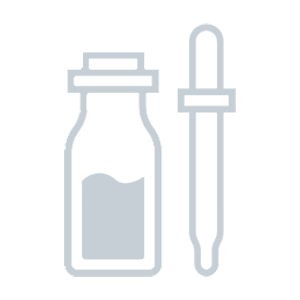Comparison between Rivela 2% Hyaluronic Acid Serum vs. Rivela Dermascience 10% Niacinamide + 1% Hyaluronic Acid Serum
- 21 components -
- 19 components -
Find out which product is better for your skin.
Ingredients in both products 10
Components only in Rivela 2% Hyaluronic Acid Serum 11
Ethoxydiglycol, Panthenol, Copper Tripeptide-1, Ethylhexylglycerin, Hydroxyethylcellulose and 6 more. Show all.
Uniqueness: 52.4%
Components only in Rivela Dermascience 10% Niacinamide + 1% Hyaluronic Acid Serum 9
Niacinamide, 1,2-Hexanediol, Glycyrrhiza Glabra (Licorice) Root Extract, Ethylhexyl Glycerine, Hamamelis Virginiana (Witch Hazel) Extract and 4 more. Show all.
Uniqueness: 47.4%
Face to Face
Components position by position
1
Water
1
Water
2
Butylene Glycol
2
Niacinamide
3
Ethoxydiglycol
3
Glycerin
4
Glycerin
4
Butylene Glycol
5
Sodium Hyaluronate
5
Water
6
Panthenol
6
1,2-Hexanediol
7
Copper Tripeptide-1
7
Sodium Hyaluronate
8
Phenoxyethanol
8
Glycyrrhiza Glabra (Licorice) Root Extract
Show others
Positive Effects
Find out what good effects the product has
Both products provide the following effects: Antioxidant, UV Protection, Moisturizing, Softening, Soothing, Anti-aging, Healing, Rejuvenation, Antifungal, Antiseptic, Anticellulite, Antiviral, Tones up skin, Hair conditioning, Hair strengthening, Hair structure improvement, Hair gloss, Hair protection, Hair growth stimulating
Effects unique for 2% Hyaluronic Acid Serum:
DeodorantEffects unique for 10% Niacinamide + 1% Hyaluronic Acid Serum:
Cleansing, Acne fighting, Pore Shrinking, Lightening, Lifting, Elasticity improvement-- Show more --
ECO Metrics
Find out how eco-friendly the components are
Vegan
No
No
Cruelty free
No
No
Reef safe
Yes
Yes
Ozone layer safe
Yes
Yes
Organic score
natural
5 out of 21
24%
chemical
12 out of 21
57%
natural
8 out of 19
42%
chemical
7 out of 19
37%
Concerns
Pay attention to this information
-- Extra information --
Components by Skin Type
Find out what components are good or bad for your skin type
Dry skin
Positive: 5Negative: 0
Butylene Glycol#2Glycerin#4Sodium Hyaluronate#5Panthenol#6Sodium Hyaluronate#14
Oily skin
Positive: 1Negative: 0
Camellia Sinensis (Green Tea) Leaf Extract#20
Sensitive skin
Positive: 1Negative: 0
Aloe Barbadensis (Aloe Vera) Leaf Extract#11
Dry skin
Positive: 5Negative: 0
Glycerin#3Butylene Glycol#41,2-Hexanediol#6Sodium Hyaluronate#7Sodium Hyaluronate#18
Oily skin
Positive: 2Negative: 0
Camellia Sinensis (Green Tea) Leaf Extract#11Hamamelis Virginiana (Witch Hazel) Extract#12
Sensitive skin
Positive: 1Negative: 1
Aloe Barbadensis (Aloe Vera) Leaf Extract#13Citric Acid#17

